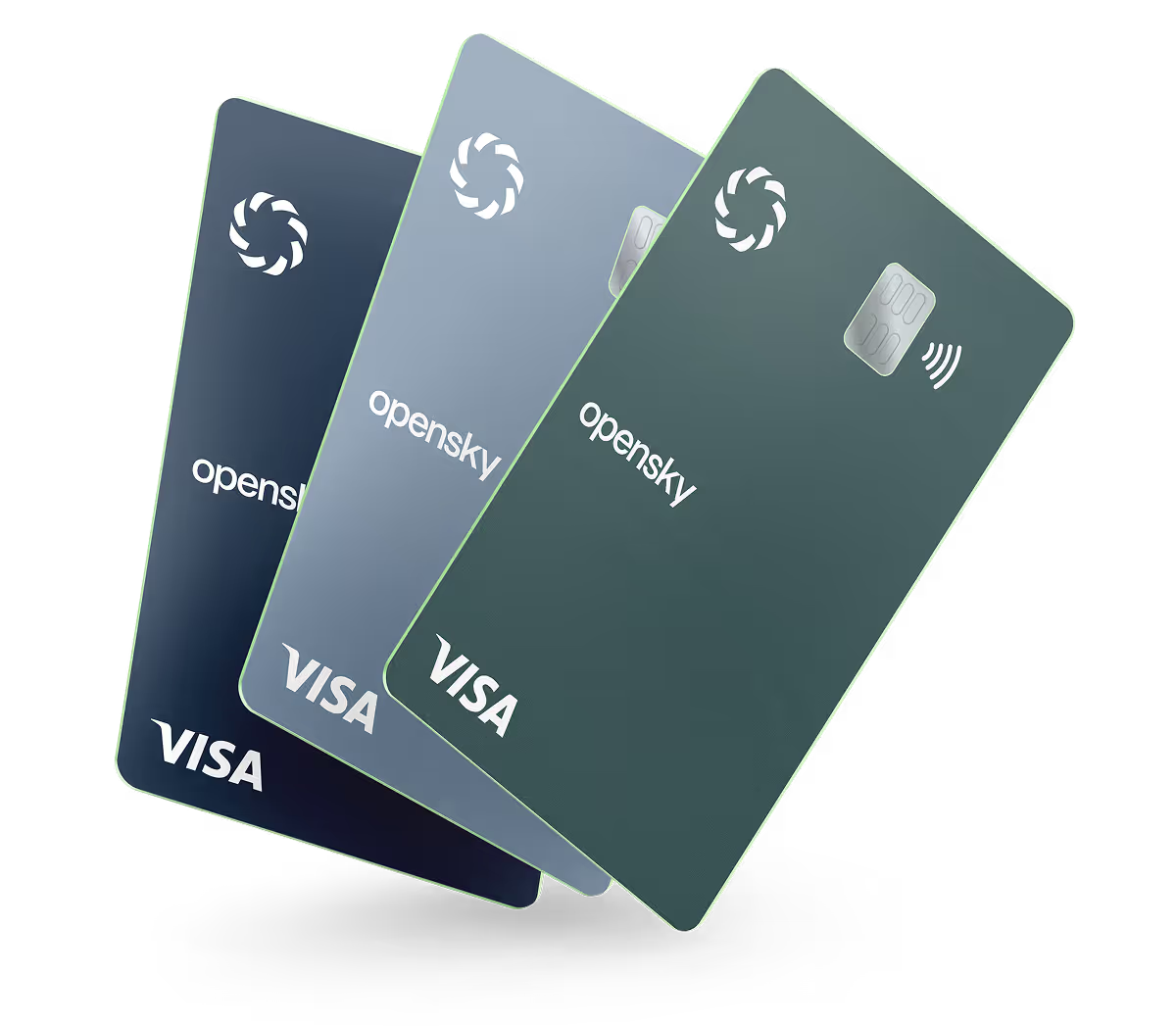7 Strategies to Rebuild Your Credit
Working to improve your credit after a difficult life event, you might have fewer credit avenues. The good news is that there are options...

What is a low credit score?
A low credit score typically refers to a FICO score of 580 or below. While having a lower credit score can make getting approved for loans or credit cards more challenging, it's more common than you might think. Life events like unexpected medical bills, a divorce, or filing for bankruptcy can impact your score, as can issues with your student loans or missed payments. Rebuilding your credit can take time, but addressing the issue head-on is the most effective approach.
How to rebuild your credit
No matter why your credit score took a hit, you can start rebuilding it by tackling any issues in your credit reports and building good credit habits. Here are 7 strategies to get you started.
1. Review your credit reports
Understanding your current credit status is the essential first step in rebuilding your credit. You can check your credit report from each of the three major bureaus—Equifax, Experian, and TransUnion—once a year for free at AnnualCreditReport.com.
2. Make on-time payments
To boost your credit score, pay your bills on or before their due date to avoid late fees and negative marks. For credit cards, aim to pay your bill in full each month. If that's not possible, at least make the minimum payment and work on reducing your balance as quickly as you can.
3. Keep your credit utilization low
Your credit utilization ratio is the percentage of available credit you currently use. Aim to use 30% of your available credit limit at most. This shows lenders that you can stay on top of your spending, which can help raise your credit score.
4. Avoid closing accounts
Closing credit cards or other accounts can lower your available credit and hurt your credit score. It can also make lenders see you as a higher risk. So, it's usually better to keep your older accounts open unless the risk of keeping it open outweighs the risk of closing the credit line.
5. Limit new credit applications
Having multiple credit inquiries in a short time can lower your credit score, which can make it harder to get approved for different types of credit and may lead to higher interest rates. So, it's best to apply for credit only when you need it.
6. Ask a trusted family member or friend for support
If you're having trouble getting approved for credit, consider asking a friend or family member for help. They can improve your chances of securing a loan or credit card by acting as a cosigner, especially if they have a strong credit history. Just keep in mind that any missed payments will affect both your credit and theirs.
You can also ask to be added as an authorized user on their credit card, allowing you to benefit from their positive credit history without taking on legal responsibility for the debt. Both options can help boost your credit as you work to rebuild your financial standing.
7. Try a secured credit card
A secured credit card is a type of credit card that requires you to make a refundable cash deposit upfront. Unlike unsecured cards, where your credit limit depends on your credit history, a secured card's limit is equal to your deposit. For example, if you deposit $100, your credit limit will be $100. These cards are ideal for those looking to rebuild their credit because they often don't require a traditional credit check to apply, which makes them easier to get.
How to apply for a secured credit card
If a secured credit card sounds like the right choice for you, follow these steps to apply.
Step 1: Determine your budget
Secured credit cards require a cash security deposit upfront, so determining how much you can afford is crucial. If you're unsure how much to put down, consider starting with a smaller deposit, like a hundred dollars. As you build confidence, you can add more to your deposit to increase your credit limit over time.
Step 2: Do research on different cards
When selecting the right card, compare deposit requirements, fees, interest rates (APRs), rewards, and potential upgrade paths. To get started, you can contrast card features to find the best fit for you.
Step 3: Choose a secured card
When choosing between credit cards, it’s best to choose the one that suits your unique needs and budget.
If you're considering a secured credit card with opensky, all three of our options offer an 89% approval rate1. Cardholders typically see an average 47-point increase in their credit score within the first six months2.
Step 4: Submit your credit application
You can apply for a secured credit card online through the card issuer's website. Be sure to have this information on hand:
- Full legal name
- Social security number (SSN) or individual taxpayer identification number (ITIN)
- Street address
- Phone number
- Employment status
- Annual income before taxes
- Housing costs (rent or mortgage)
Step 5: Fund your card
Once you're approved, fund your card with your cash security deposit. You might also have to pay additional fees, such as application, processing, or annual fees, so make sure to keep that in mind when you open your account.
How long does it take to rebuild credit?
It can take a few months to several years to rebuild your credit, depending on your starting point and the steps you take. Negative information typically stays on your report for up to seven years, and bankruptcies for up to 10 years. But don't worry—your credit score will improve over time with consistent, good habits.
1 Based on the last 6 months, opensky Secured Visa® Credit Card average approval rate is 89.01%. Individual approval results may vary.
2 Based on the first half of 2024, 66% of opensky customers increase their score by 47+ points after 6 months.
Takeaways
- While rebuilding your credit takes time, it's definitely achievable.
- Start by regularly checking your credit reports, paying your bills on time, and keeping your credit usage low.
- Using a secured credit card can also help improve your credit — just make sure to choose one that fits your budget.
Frequently asked
What is a "secured" credit card?
A secured credit card requires a one-time refundable security deposit to open and is equal to your credit limit. For example, if you deposit $100, your credit limit becomes $100. The beauty of the opensky secured credit card is that you can open an account without undergoing a traditional credit check. This is especially beneficial if you have a poor credit history or no credit history at all.
How much will a secured credit card raise my score?
Your rate of improvement depends on a few factors, including your current status, payment habits, and your management of this and any other lines of credit. Opensky is designed specifically to help people improve their credit fast, with an online/mobile app and tools like alerts to help monitor your account. Plus you will get considered for credit line increases that turbocharge your growth.
How can I obtain a copy of my credit report?
Federal law states that you can get a free report from each of the three nationwide consumer credit reporting companies - Experian®, TransUnion® and Equifax® - once every 12 months. Don't be fooled by offers from companies to pull your credit report or websites that ask for payment to see your credit report; only https://www.annualcreditreport.com/index.action is the official site authorized by the Federal government.
Is there an annual fee for this card? Are there any hidden charges?
Yes, there is a $35 annual fee for the opensky Secured Visa® Credit Card. There is no annual fee for the opensky Plus Secured Visa® Credit Card. Opensky believes in being upfront. There are no hidden fees or charges. All of our pricing and fee information is transparent and can be reviewed (See cardholder agreements at the bottom of this page).
What is a "credit limit" and how is my credit limit decided?
A credit limit represents the maximum amount you can spend on your credit card subject to approval. You decide the deposit amount, which directly determines your credit limit. It can range from as low as $100 to as high as $3,000, depending on the card you choose. The goal is to ensure you can manage payments effectively and succeed in building your credit! *All applications are subject to approval.


.png)



.avif)
.avif)